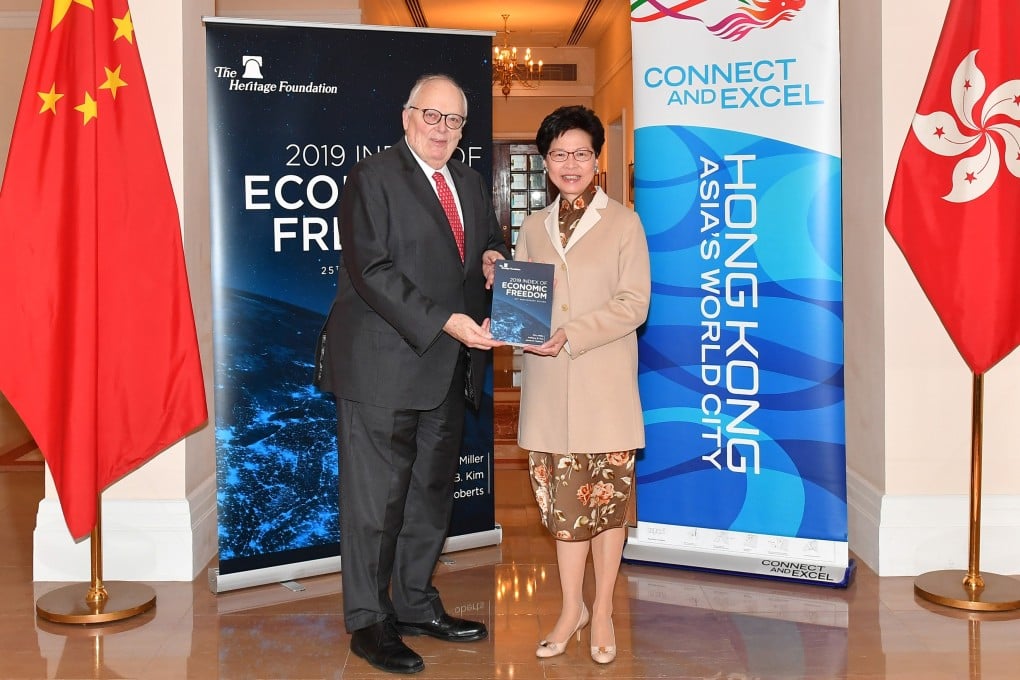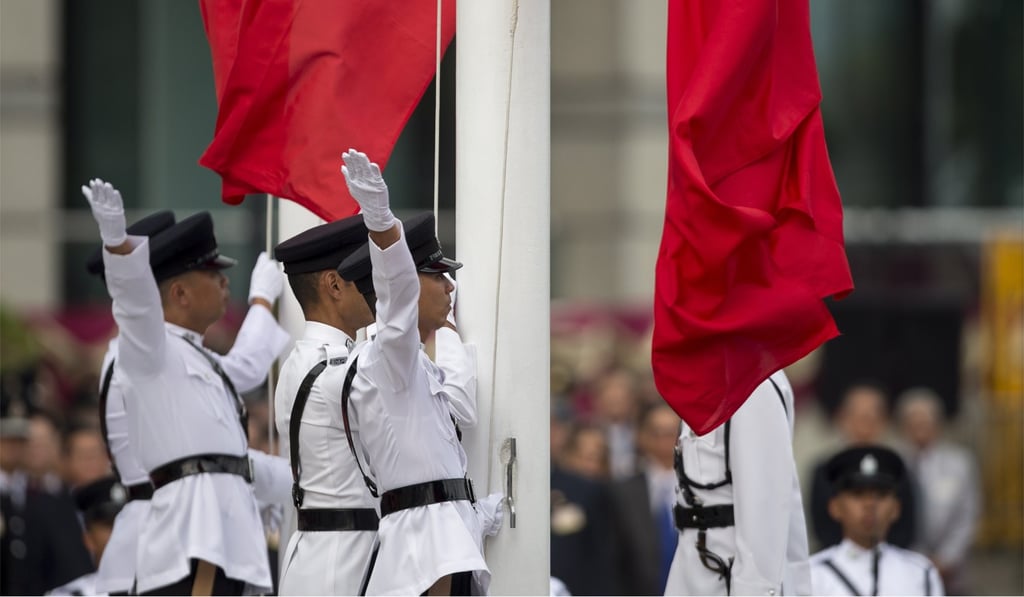Advertisement
Beijing has not infringed on Hong Kong’s judicial independence, leader Carrie Lam tells US think tank the Heritage Foundation
- Central government’s power to interpret Basic Law has helped to ensure Hong Kong’s prosperity since handover in 1997, she says
- Foundation ranked city as world’s freest economy for 25th successive year but highlighted a decline in judicial effectiveness
Reading Time:3 minutes
Why you can trust SCMP

Beijing did not infringe on Hong Kong’s judicial independence by reserving its power to interpret the city’s mini-constitution, Hong Kong’s leader told an American think tank chief on Monday.
In a meeting with the Heritage Foundation's founder Edwin Feulner, Chief Executive Carrie Lam Cheng Yuet-ngor also said the central government’s power to interpret the Basic Law had helped to ensure Hong Kong’s prosperity since it was returned from British to Chinese rule in 1997.
Lam’s office revealed details of the meeting in a press release.
Advertisement
On Friday, Hong Kong was ranked by the foundation, a conservative research and educational institution based in Washington, as the world’s freest economy for the 25th consecutive year.

Advertisement
However, the foundation also highlighted what it called a decline in judicial effectiveness brought about by Beijing reserving “the right to make final interpretations of the Basic Law, effectively limiting the power of Hong Kong’s Court of Final Appeal”.
Advertisement
Select Voice
Select Speed
1.00x